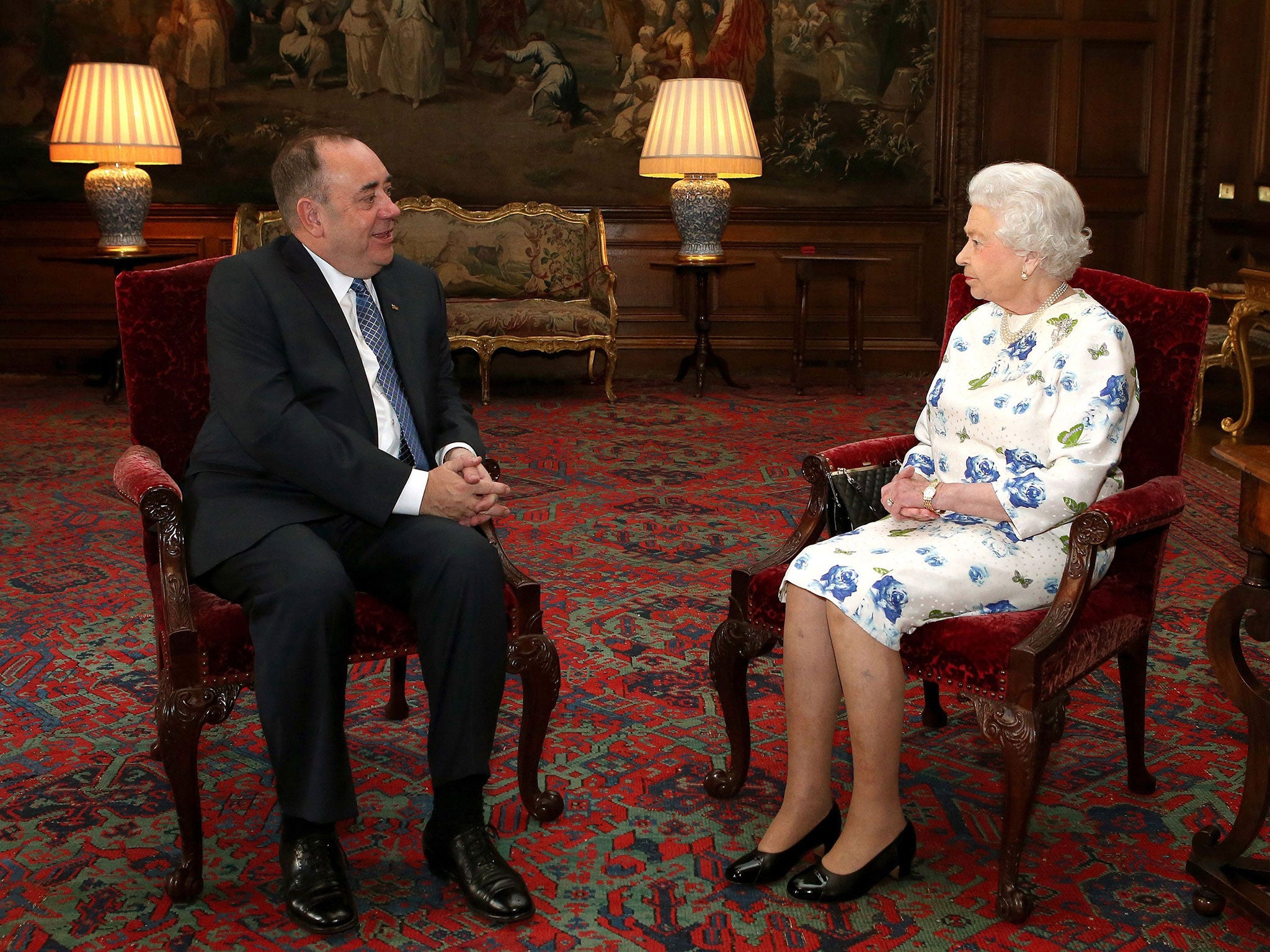Those who say the Queen should not be ‘above’ politics misunderstand her role
Whatever the arguments, it is a popular vote and nothing to do with Her Majesty


As the news emerged on Monday that his wife was expecting their second child, the Duke of Cambridge urged people to focus not on the royal baby but instead on the “big news and the big international and domestic things that are going on at the moment”. Although he didn’t spell it out, Prince William quite clearly meant Islamist terrorism and the prospect of Scottish independence. Was this a hint, at last, of a future king prepared to be more explicitly political than his grandmother, and, for once, not willing to be bogged down in the bland, neutral trivialities of corgis, horse racing and “Have you come far?” of our current monarch?
The next day, however, it was royal business as usual from his grandmother and father. The Queen, apparently exasperated at reports that she was “concerned” at the break-up of the United Kingdom, sanctioned an extraordinary statement from Buckingham Palace reminding her subjects that she was “above politics” and that the referendum vote was “for the people of Scotland”. As if to hammer home the point that the Royal Family likes to keep things light, the Prince of Wales told well-wishers in Bermondsey, south London, that he was hoping his new grandchild would be a girl.
You could sense the dismay from the No campaign and Westminster’s three party leaders. Amid continuing momentum for a Yes vote, any kind of endorsement from the Queen for her 300-year Union would have been the game-changer they desperately needed. After all, did she not say in 1977, to mark her Silver Jubilee, “I cannot forget that I was crowned Queen of the United Kingdom of Great Britain and Northern Ireland”?
Surely the breaking of the kingdom is a breaking of the crown? Isn’t it something far beyond just “politics” but our – her – country’s very existence? A constitutional crisis may erupt in seven days’ time, and if the monarch cannot intervene to stop that, what is she for? Is the Royal Family in the 21st century nothing more than a glittering tourist attraction and baby production line?
Imagine it is 2050, and King George VII is on the throne as Yorkshire and Merseyside vote on independence from Westminster (Wales and Cornwall having separated in the 2030s). Would he be able to hold the line that the monarch is “above politics”?
If Scotland votes Yes next Thursday it is the event of the century (for these islands, at least). And yet the Queen, in saying nothing, has made a deliberate and necessary constitutional statement to preserve the serenity of her monarchy in Scotland. She has maintained what the 19th-century constitutionalist Walter Bagehot described as the “intelligible” status of the monarch: a perfect figurehead who is not sullied by politics but unifies people by being at the same time “above” them and reflecting their everyday lives.
The Queen can only be both “intelligible” and capable of inspiring loyalty if her subjects can identify with her commonplace interests – babies and dogs, for example – while remaining totally insulated from and untainted by divisive and grubby political battles. To take sides in the referendum would be to alienate a section of her people and put herself in an impossible position, from her hearthside at Balmoral, on 19 September. Bagehot wrote of Victoria: “The use of the Queen, in a dignified capacity, is incalculable... Most people when they read that the Queen walked on the slopes at Windsor – that the Prince of Wales went to the Derby – have imagined that too much thought and prominence were given to little things. But they have been in error; and it is nice to trace how the actions of a retired widow and an unemployed youth become of such importance.”
So if there is a Yes vote next week, the monarchy will remain intact. It is not a contradiction to say the kingdom will be broken, and yet still united under one Queen (whether republicans like this or not). Or, as the Scottish Government’s White Paper envisages, merely “continuing the Union of Crowns”, which predates the Union of Parliaments by a century.
And when the Queen says next week’s vote is a matter for the people of Scotland, indeed it is. The scenes in Edinburgh, Dundee, Glasgow et al are reminiscent of Tony Blair’s landslide in 1997 – a popular wave that seems unstoppable. It is of the people, not of politicians – and certainly not of royalty. A Scottish relative of mine, having lived south of the border for many years, has moved up to Scotland so he can vote Yes. He says the people of Scotland “have to decide whether we are a nation or not”. Whatever the arguments of Yes or No, it is a popular vote – and nothing to do with the Queen. On 19 September it might be Lizzie, Queen of Scots, who says: “Have you come far?” And the people of Scotland can say they have.
Join our commenting forum
Join thought-provoking conversations, follow other Independent readers and see their replies
Comments
Bookmark popover
Removed from bookmarks